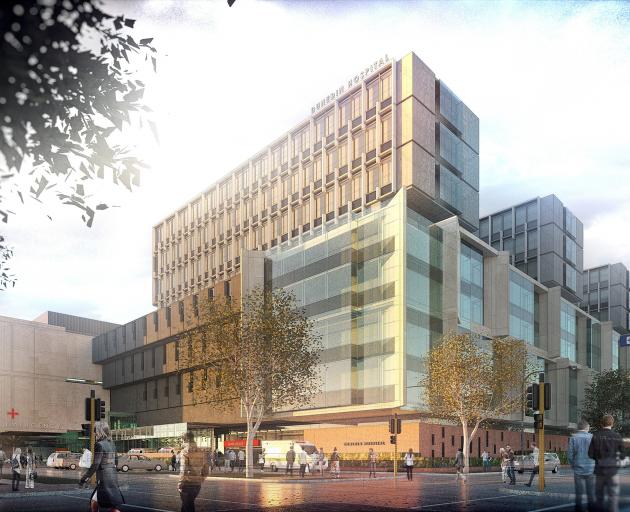
Firstly, senior clinicians at the oncology department made public their previously private disquiet at their service being excluded from the initial build of the new hospital.
Days later other, anonymous, clinicians suggested that they were also concerned about the mix of services to be offered at the new hospital when it opens for business.
Former health minister Pete Hodgson, who is steering the rebuild, is trying to stitch together a series of compromises between what the community expects, what clinical staff want to deliver, and what the taxpayer's money can afford.
This cannot be an easy task, as the project's prolonged five-stage planning process suggests.
However now, as phase two nears completion, seems an ideal moment to pause and reconsider decisions which may have ramifications for patient treatment for decades to come.
The oncology service seems an obvious case in point.
A matter of weeks ago the Government signalled its determination to tackle cancer by launching a national action plan for treatment of the disease.
It seems at odds with the spirit of that plan for Dunedin oncologists to be complaining that their initial exemption from the new hospital could compromise the wellbeing of the most fragile and ill patients they treat.
Mr Hodgson has made some reasonable points in response; the current oncology building is relatively new and even with a big-sounding budget, the cost of moving the services linear accelerator machines across Cumberland St would be an added impost.
However, as he acknowledges, the service will probably eventually be relocated to some of the extra land being banked on the central city site for future expansion.
That will also come at a cost, and with clinicians arguing that the current plans have serious shortcomings, is it a false economy to defer that move until later?
They have raised the spectre of patients being carried in stretchers from one building to another, and of clinicians having to scooter between facilities to complete their rounds.
Even allowing a discount for headline-grabbing rhetoric, the scenario the doctors paint does not sound like an efficient use of resources or a restful, healing experience for patients.
The unease of oncologists is seemingly shared by some of their colleagues, who have questioned whether budget issues are creating tensions between what a new, state of the art Dunedin hospital might be and what fiscal rigour dictates it will be.
John Adams, the highly experienced health professional and administrator who leads the clinical leadership group of health professionals advising the rebuild, told the Otago Daily Times that discussions were ongoing and it was premature to make a definitive comment on which hospital services will end up where.
That said, he also waved a yellow card to planners when he said that clinicians would continue to raise any issues where they thought the operations of the new hospital might be compromised.
Designing a new hospital should not be a matter of blindly repeating the model of the current hospital; some services currently there are better placed in the community, and some future breakthrough or technology could dramatically alter what is required of the building in years to come.
After all, Dunedin hospital is but a part of a wider health system, albeit a vital part: it will not and cannot be a cure for all that ails us.
What it does have to be though, is the right facility at the right size at the right price.
Achieving all three will be a remarkable feat, but if the right questions are given the right answers now, the prospects of Dunedin, Otago and Southland patients having a hospital the region can be proud of will be greatly increased.
Comments
The question of what services are to be offered at the hospital has nothing to do with a new building complex. The issue of southerners being forced to travel to Christchurch or the North island for surgery and treatment has been around for years.
The National government continually dodged telling people the truth. People obviously wrongly believed a Labour health minister who comes from the region might be more supportive of local health treatment.
Come on minister - forget the shiny new buildings. Tell us now exactly how many lives are to be put at risk traveling out of town for life saving care! No more bull, no more faceless Wellington bureaucrats. Tell us the truth.












